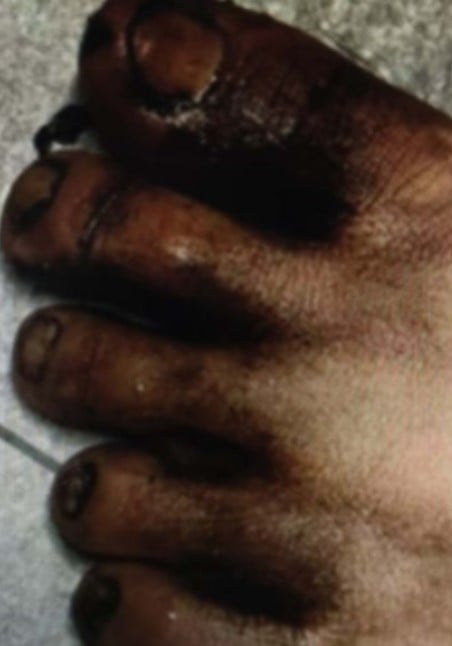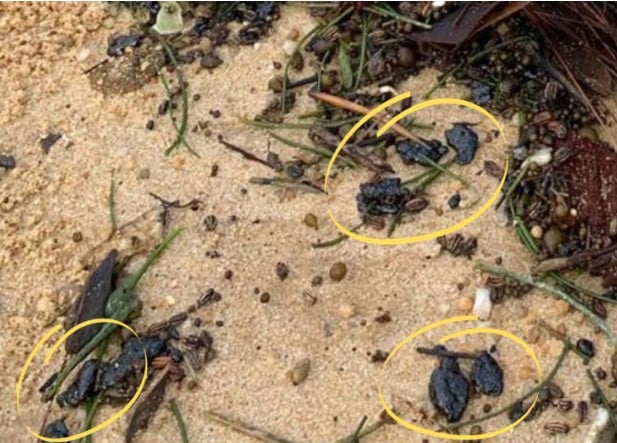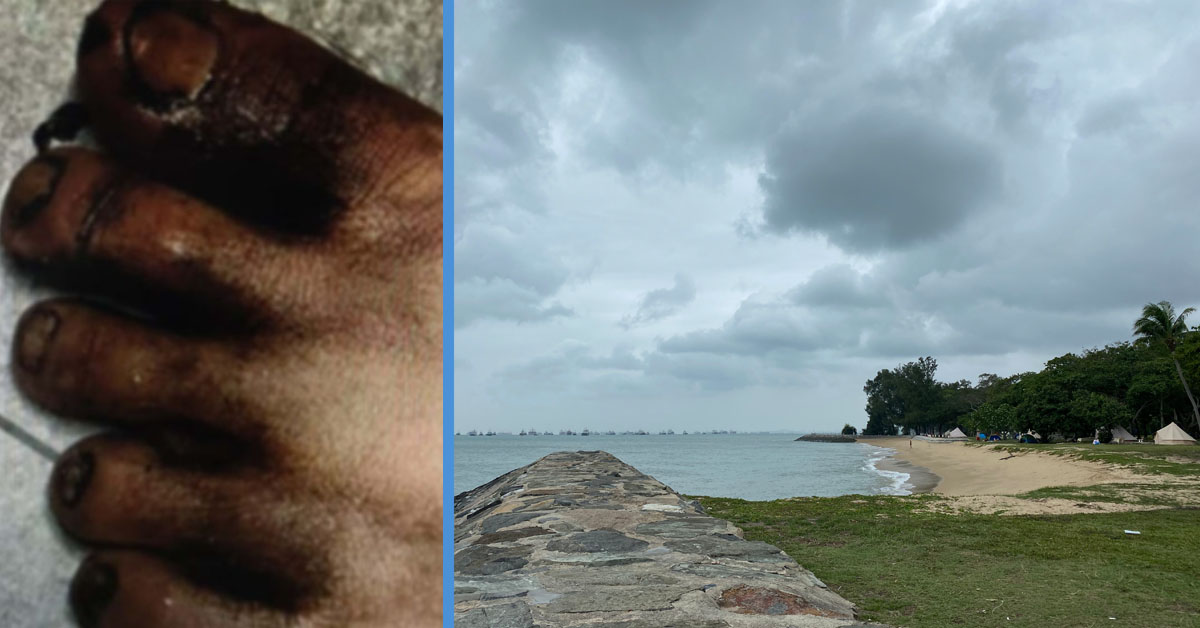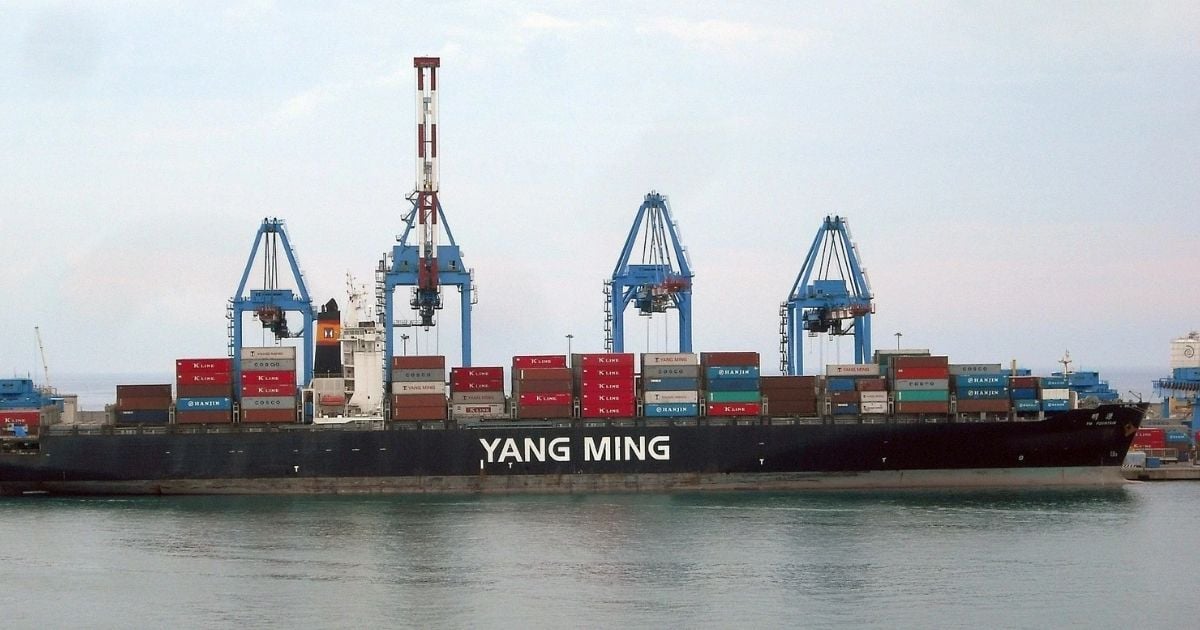It’s no secret that beaches aren’t the cleanest places, what’s with trash getting washed up to shores or improper waste disposal at the sites.
And the sea water—yeah, it’s better to leave that salty water body as its own topic, because it has literally experienced millions of years of marine life excreting and dying, plus millenniums of pollution.
For one family that decided to spend their day camping at Area G of East Coast Park, things became a messy affair when the children returned with their hands, feet, clothes, and toys stained with an unknown, black and sticky substance.

Um, yuck?
What Happened?
According to 8world News, one of the mothers going by the surname of Chen had brought her children to Area G of East Coast Park on 21 June.
After spending some time in the water, one of the boys came back to the campsite at around 7:30pm, covered in a mysterious substance.
The boy, who is Chen’s eldest son, told his mother that he had stepped on a “large soft object”, which blackened his feet upon contact.
Soon after, the other children came back in a similar state.
The parents tried to remove the stains by exfoliating it with sand or washing it away with soap, but it was to no avail.
They only managed to get it removed four hours later after resorting to paint removers.
Chen observed that while they were trying to get rid of the odd substance, there were other people who were stuck in the same predicament as them, including a young couple, middle-aged and elderly folks who had gone for an evening stroll at the park.
Chen was puzzled because she had never encountered such a thing before despite being a frequent beach goer.
Possible Suspicions
While the parents didn’t manage to identify what the substance was, they had a few educated guesses.
Chen personally suspects that it could be waste oil or some leakage from a cargo ship that had anchored near the coast.
She added that the water had been “clean” when the family arrived at 3pm.
Chen wonders if the tides turning in the evening had caused the waters to bring the oil to shore.
The very next morning, Chen returned to the same area and noticed that there were black clumps which had solidified littering all over the receded shoreline.

Truth to be told, it’s highly likely that Chen is correct.
Similar events have occurred in the past.
For instance, there was a ship collision near Kusu Island and St John Island in 2014, which forced the beaches to close temporarily to get rid of the oil slick.
In 2016, the sand at Changi Beach was also stained with oil after two container vessels crashed into each other and spilled nearly 300 tonnes of oil in Singaporean and Malaysian waters.
In fact, since 1960, there are 39 recorded spillages which have resulted in more than 34 tonnes of oil polluting the waters, according to a report in Singapore Infopedia.
Back then, workers were deployed to shovel the affected sand into trash bags.
Therefore, the NEA might be dispatching a clean-up crew soon, as one of its duties include regularly monitoring the water quality of coastal areas by drawing water samples and analysing them for anomalies such as oil spills and algae blooms.
It’s important to clean up the anomalies as they may affect the fish farms and marine environments of Singapore negatively.
Until the strange substance is cleaned up, there’s nothing more you can do besides avoiding it.
So if you like taking a leisurely stroll along the beaches of East Coast Park, you might want to watch your feet for the next few days, or just stay on the pavement.
Featured Images: 8world News & Google Maps



